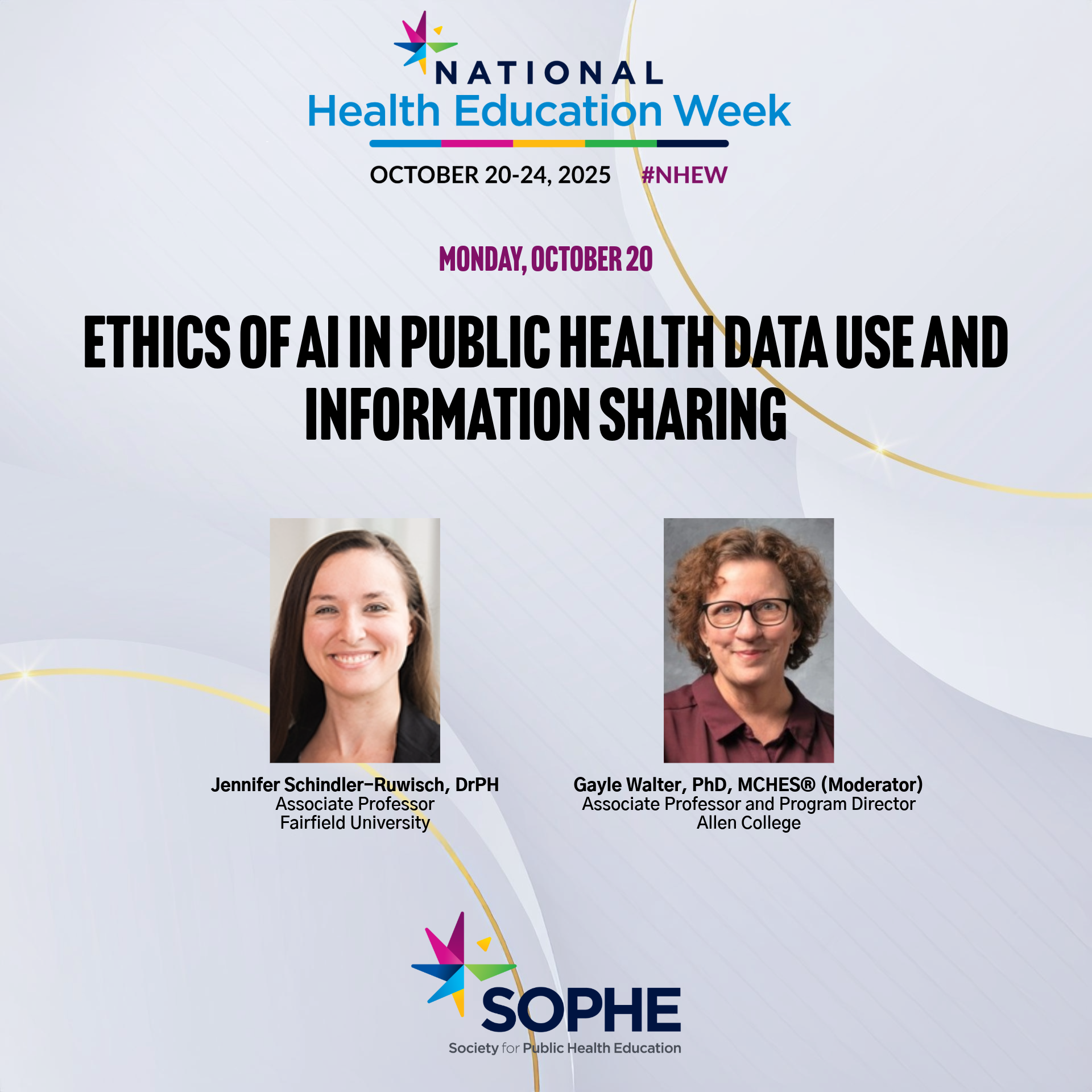
National Health Education Week
Since 1995, SOPHE has led the National Health Education Week* (NHEW) celebration during the third week of October.
NHEW activities increase awareness of major public health issues and promote a better understanding of the role of health education and health promotion.
Join SOPHE, its chapters, members, and partners every October for events, webinars, and activities across the country.
*Initially in collaboration with the Department of Health and Human Services
Purpose
To increase national awareness on major public health issues and promote a better understanding of the role of health education.
NHEW Mission
To increase the awareness of health education specialists’ capacity in the community and schools and to promote the health of society.







